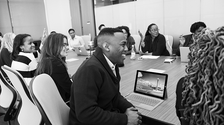Sam Thomas
When can you use 足够 and when do you use 够了?
When can you use 足够 and when do you use 够了? What is the the difference between them?
e.g. Can you say both 我们有足够的咖啡 and 咖啡够了?
Apr 23, 2013 9:54 AM
Answers · 6
我們已經有足夠的咖啡,謝謝。
Apparently, a whole fluently sentence is a challenge to you.
Perhaps translate your sentence into English, you will be very easy to understand your attitude.
We have sufficient coffee and coffee enough! not this symbol?
Hopefully, you like my explanation.
August 17, 2014
够了,放后面,结尾用,足够放句子中间比较好
May 15, 2013
well, "咖啡够了" sounds kind of stiff. When you want to stop someone pouring coffee for you, you will probably say "可以了,谢谢!" (you can actually say "够了" to the ones you know well, but not "咖啡够了"). "(我受)够(你or..)了" means "I've had enough (of you)", when used singly. There is still one situation in which "咖啡够了" sounds natural: suppose you're preparing for a party with your partners, when one of your partners asks you if you've got enough drinks so that he can know what else should be bought, then you might say " coffee's been enough(咖啡(已经)够了), but we don't have any cola(咖啡(已经)够)."
April 23, 2013
"足够" is like "plenty of ", while "够了" is like "enough"
if there is someone talks and talks and talks...talks too much, and you are fed up with what he or she says, then you can say "够了", but in this case you can NOT say "足够"
"我们有足够的咖啡" and " 咖啡够了" are both correct grammatically, i think it depends on the context that how you use them. For example, if you want to tell a waiter that you don´t need any more coffee, then you can say"够了". But if you want to express that you are not short of coffee, then you say the former.
April 23, 2013
1.in spoken language,we often use"够了".
in written language,we often use"足够".
2.after “足够”,we can add some adjectives
for example,足够多(的)、足够好(的)。
more formal
3.if you are annoyed by something..(when you are arguing with someone,,and you dont want to talk anymore,,)you can say "够了!" with a strong tone
^^
April 23, 2013
Show more
Still haven’t found your answers?
Write down your questions and let the native speakers help you!
Sam Thomas
Language Skills
Chinese (Mandarin), English, French, German
Learning Language
Chinese (Mandarin), French, German
Articles You May Also Like

Learning Love Languages: How to Express Affection in English
4 likes · 0 Comments

Effective Networking for Business Professionals: How to Make Meaningful Connections and Build a Professional Network
6 likes · 4 Comments

Preparing for Interview Success
21 likes · 14 Comments
More articles
